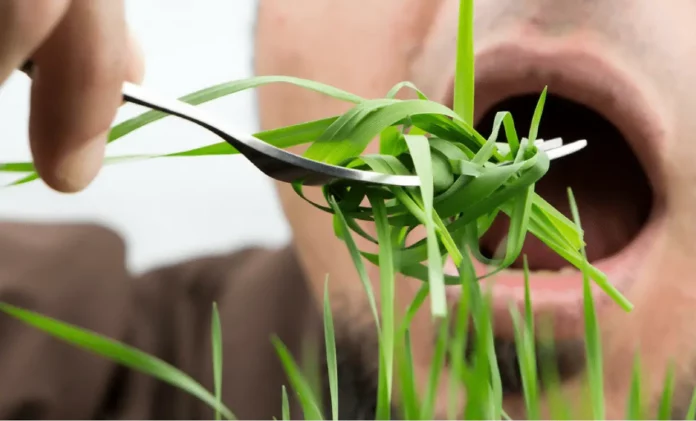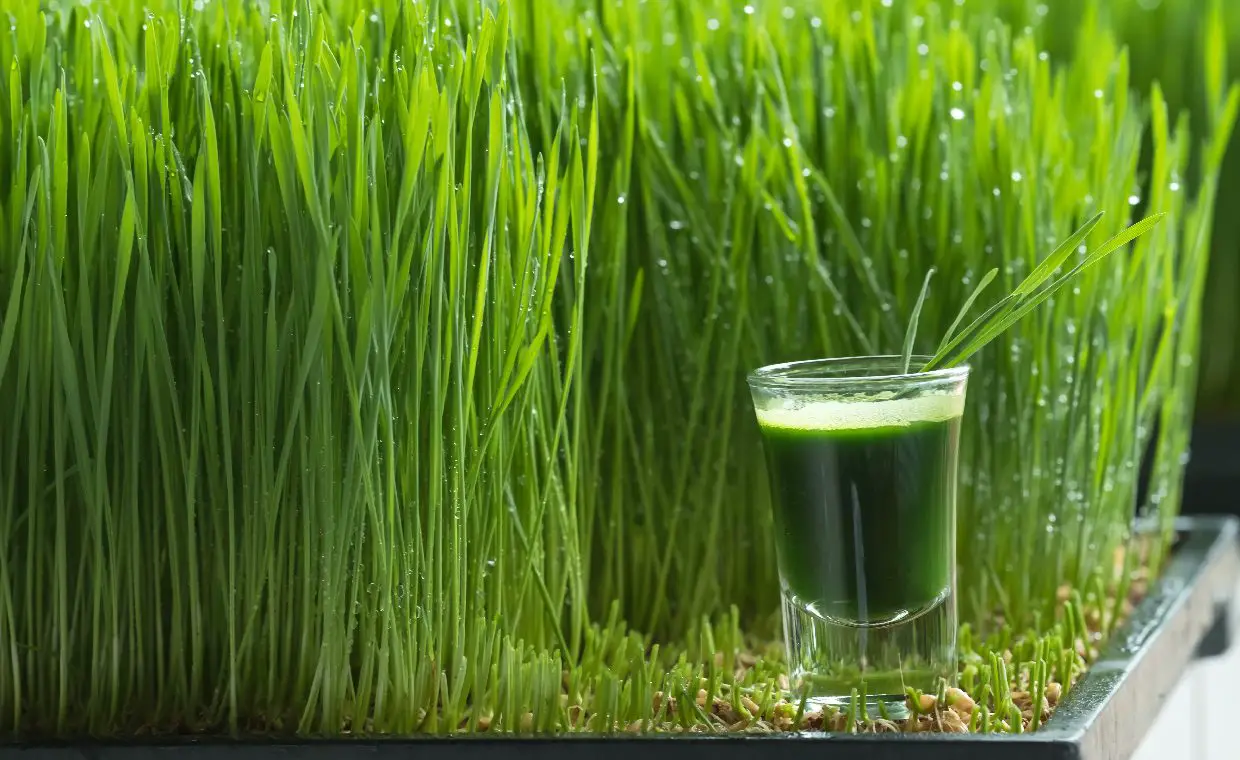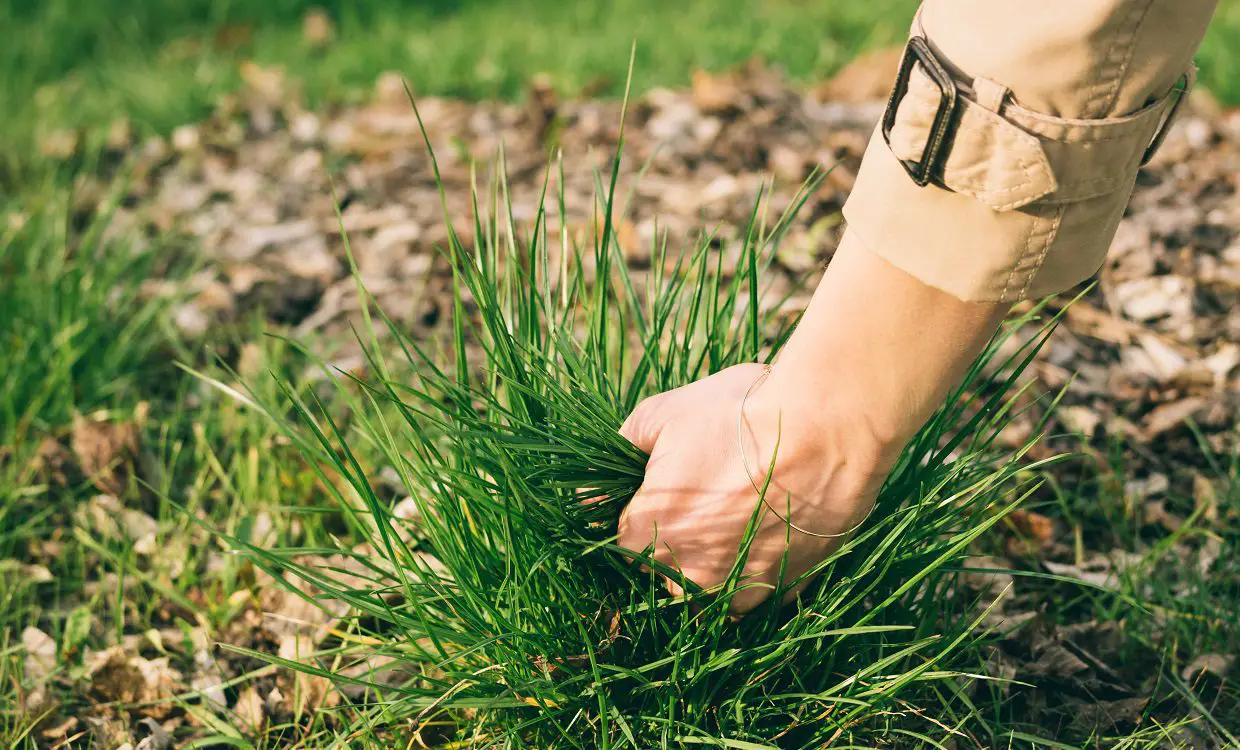SHTFPreparedness may collect a share of sales or other compensation from the links on this page.
In the world of nutrition habits, many debates exist about what we should or shouldn’t eat.
Some people argue for a diet high in meat. Others advocate a plant-based lifestyle. But have you ever wondered if humans can eat grass to survive?
It may seem like a strange question. But the fact is that humans have been eating grains and grains for centuries. And while the grass may not be the most delicious food, it’s a staple for many animals, including cows and horses.
The answer is yes; humans can eat grass. But we do not recommend it as a primary food source due to its high fiber content and lack of essential nutrients. Grass doesn’t contain enough essential elements to sustain the human body long.
In this text, we will take a closer look at the question of whether humans can eat grass. We will look at the nutrient content of grass and the kinds of grass you can eat.
You will also learn the big secret of how long you can live by eating grass. Let’s start.
Nutritional Value of Grass
Grass is a plant that is often thought of as a food source for animals. But did you know that people can also eat grass?
Generally speaking, it is not common to eat grass. However, looking into it, you will find it contains several important nutrients.
First and foremost, the grass is rich in fiber, which is crucial for digestive health. It also contains a range of vitamins, including vitamins C, A, and K, and several B vitamins. The grass is also a good source of calcium, iron, and magnesium minerals.
In addition to its nutrient content, the grass is also a low-calorie food. It is mainly composed of water, so it is unlikely to contribute significantly to weight gain.
However, it is important to note that the nutritional content of grass can vary. It depends on the species and the environment in which it grows.
When humans can eat grass to survive, the answer is yes. As you can see, it has nutritional value. But it is worth noting that humans cannot digest grass as effectively.
For example, cows or horses can easily do this, unlike humans. Humans lack the necessary enzymes to break down the cellulose in grass. As a result, consuming grass in large quantities is not recommended for humans.
Types of Grass Humans Can Eat
Yes, humans can eat grass, but they cannot digest it as efficiently as some animals. Still, there are some types of grass that humans can eat.
One type of grass that humans commonly eat is wheatgrass. Wheatgrass is rich in nutrients, such as vitamins A and C, iron, and calcium. It is often consumed as a juice or in powdered form.
Another type of grass that humans can eat grass to survive is barley. Like wheatgrass, barley grass is also rich in nutrients. You can eat it in the form of juice or powder.
People can add other grasses to their food, including alfalfa, rye, and oats. These grasses are also nutrient-dense and are often consumed as supplements.
However, it is important to note that consuming large quantities of grass, even those safe for human consumption, can cause digestive issues.
As with any dietary change, speaking with a healthcare professional before incorporating new foods into your diet is important. But if this is a life and death situation, try to minimize eating grass.
Have You Eaten Grass? What Happens Next?
Consumption of herbs in small quantities is generally safe for humans.
Moreover, you may be surprised, but weed can even bring some benefits. However, eating large amounts of grass can lead to several negative consequences.
One of the most common side effects of eating large amounts of grass is digestive discomfort. The high fiber content of grass can cause bloating, gas, and even diarrhea.
In addition to digestive problems, there are many other problems when eating grass. Eating grass treated with pesticides or herbicides can be harmful to human health.
These chemicals can cause some health problems. These can include:
- Nausea.
- Headaches.
- And even cancer.
Also, humans can eat grass without noticing animal fecal residue in a survival situation. Eating such grass can lead to bacterial infections such as E. coli or salmonella.
In general, small amounts of some types of grass may be safe for human consumption. But you must exercise caution. Be sure to make sure the herb is clean and free of harmful chemicals or bacteria.
How Long Can You Survive Eating Grass
Yes, grass contains some essential nutrients. And, as we have already found out, humans can eat grass.
However, it is not a complete or balanced source of nutrition for humans. We do not recommend eating grass alone for an extended period. It can lead to serious health consequences.
Eating grasses for a long time can lead to nutritional deficiencies. You may become deficient in elements such as:
- Protein.
- Fats.
- Certain vitamins and minerals.
It can lead to symptoms such as fatigue, weakness, and malnutrition. Also, as stated earlier, humans cannot digest grass as efficiently as some animals. It is why eating large amounts of grass can cause digestive problems.
In short, humans cannot survive for long by eating only grass for long periods. Do you want to stay healthy and prevent nutritional deficiencies?
This way, you need a balanced and varied diet. You should definitely include a variety of food groups in your diet.
Conclusion
In conclusion, humans can eat grass in small quantities and reap some benefits. But eating it in large amounts will lead to digestive problems and other health risks.
We recommend including various food groups in the diet for optimal nutrition levels.
If you ever find yourself in a life-and-death situation where the grass is your only option for sustenance, proceed with caution and exercise moderation when consuming it.
References:










